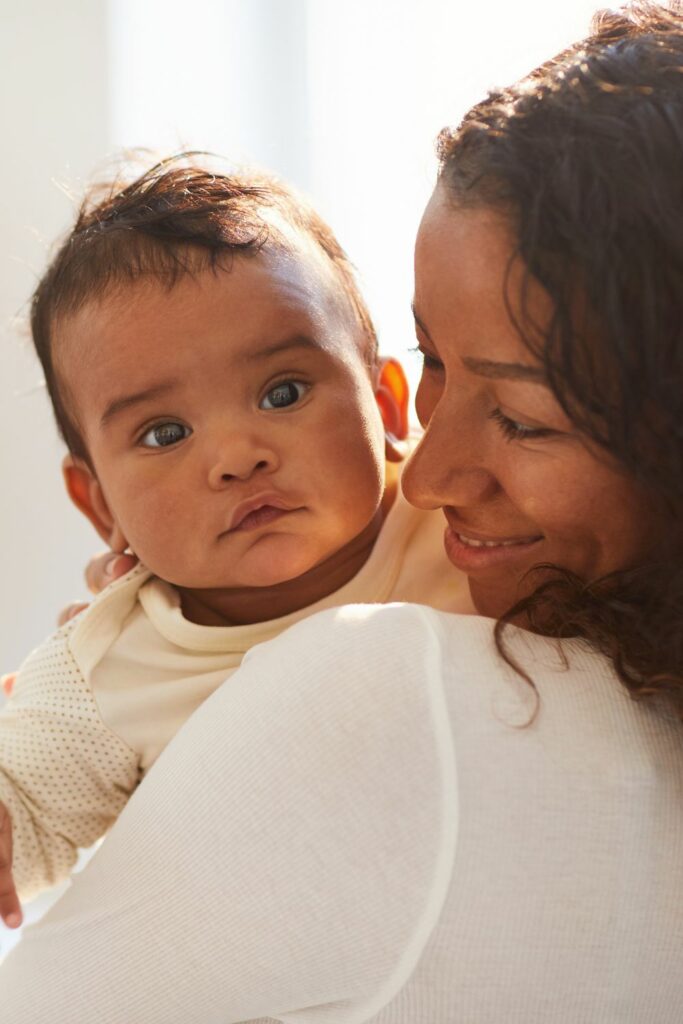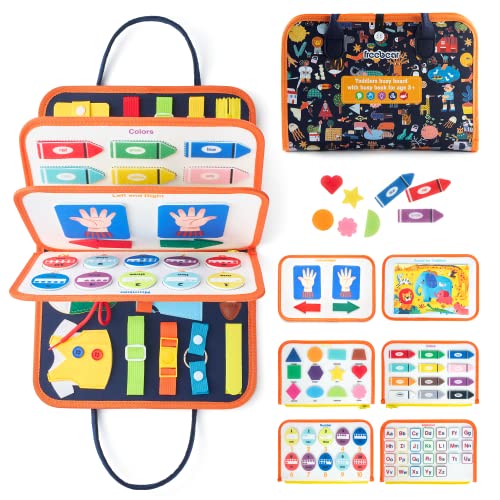In This Article Show
Does it seem like your baby doesn’t want to look at you? Eye gazing with babies is not just soul-touching but also encourages your baby to always recognize your face. Maintaining eye contact is a motor skill that begins to develop around 6 weeks of age in babies.
However, it can hurt when your precious little one refuses to look at you but fills their eyes with every other thing around them. You begin to try to decipher the reason, some panicky parents might even wonder if this is a sign of an underlying health condition, while others might assume that their baby doesn’t adore them as much.
My advice? Take a breather. Babies can be unpredictable and can show some unexplainable behaviors that can take parents aback at first. But trust me when I say, most of these behaviors are no cause for alarm.
As much as you crave an intimate moment where your adorable little angel stares at you, it might not happen for certain reasons which we will be revealing in this article. Here, you will also discover what to do to catch your baby’s full attention to spark an emotional connection. Now let’s get right into it.
Reasons Why Baby Stares At Everywhere But You
Babies can be very curious, so it is normal when they fill their eyes with their surroundings. That said, there are several reasons why babies stare at everything else that doesn’t include you, and they are;
1. Curiosity
Babies are naturally curious and as such it is normal for them to constantly new experiences and stimuli. When they stare or gaze around their surroundings but not at you, it could simply be because they are intrigued and fascinated by all other things.
Great deals to snatch for your little ones 🎉

2. Stimulating Colors
When the colors around are stimulating, bright, and contrasting, it is expected that this will catch your baby’s attention and prompt them to stare and gaze around. If there are also objects that are of decorative or stimulating patterns or sounds, your baby will naturally be drawn to them rather than looking at you.
3. Distracted By Movements
If there are multiple movements around you, mostly when you are outdoors or taking a walk in the park, it is typical for your baby to lose interest in looking at you and focus more on moving things or people.
4. Visual Development
Depending on the baby’s age, especially for the first few months, babies start practicing their visual skills by gazing and then zoning out. This doesn’t however, mean that they have lost all interest in you, they are just trying to make sense of their surroundings and explore the world around them.
5. Babies Have Short Attention Span
The truth is, it is kind of tough to catch and hold babies’ attention as they are easily distracted and have very short attention spans. This may cause them to be drawn to everything else and not their caregiver.
How To Catch Babies’ Attention
Over concerned parents need to understand that babies do not intentionally ignore them as their visual skill is still developing and there should be no cause for alarm.
When it seems like your baby prefers to look around rather than at you, parents or caregivers should try singing, clapping, and cooing at them to get their attention. This works all the time for getting their attention or getting them to look at you.
Also, consider eliminating any form of distractions from your surroundings. It is even better to go to a more and less stimulating area of the house to encourage your baby to glance at you and form a deeper connection with you.
In addition to that, talking and responding to your baby can keep them interested in interacting and gazing at you. Gently touching their cheeks, feet, or hands can also do the trick for you. For immediate attention-grabbing effects, you can try physical touch and talking to your baby all at once.
Finally, using stimulating toys that make captivating noises and dancing around while at it can get you to hold your baby’s attention and create that lasting bond.
Final Thoughts
It is common for them to have tough when trying to get their little ones to look at them. When babies stare at everywhere else but you, it is due to the fact they find other things more fascinating and stimulating and is simply satisfying their curiosity.
To win your baby’s attention, you should consider eliminating distractions, engaging in stimulating sounds such as singing, cooing, clapping, talking, or generally just responding to your baby’s talks.
Getting to maintain eye contact with your baby is very important to tighten bonds and help your baby easily recognize you. If you are worried about your baby’s staring habits, then you most likely should consider speaking to a doctor for professional advice.













